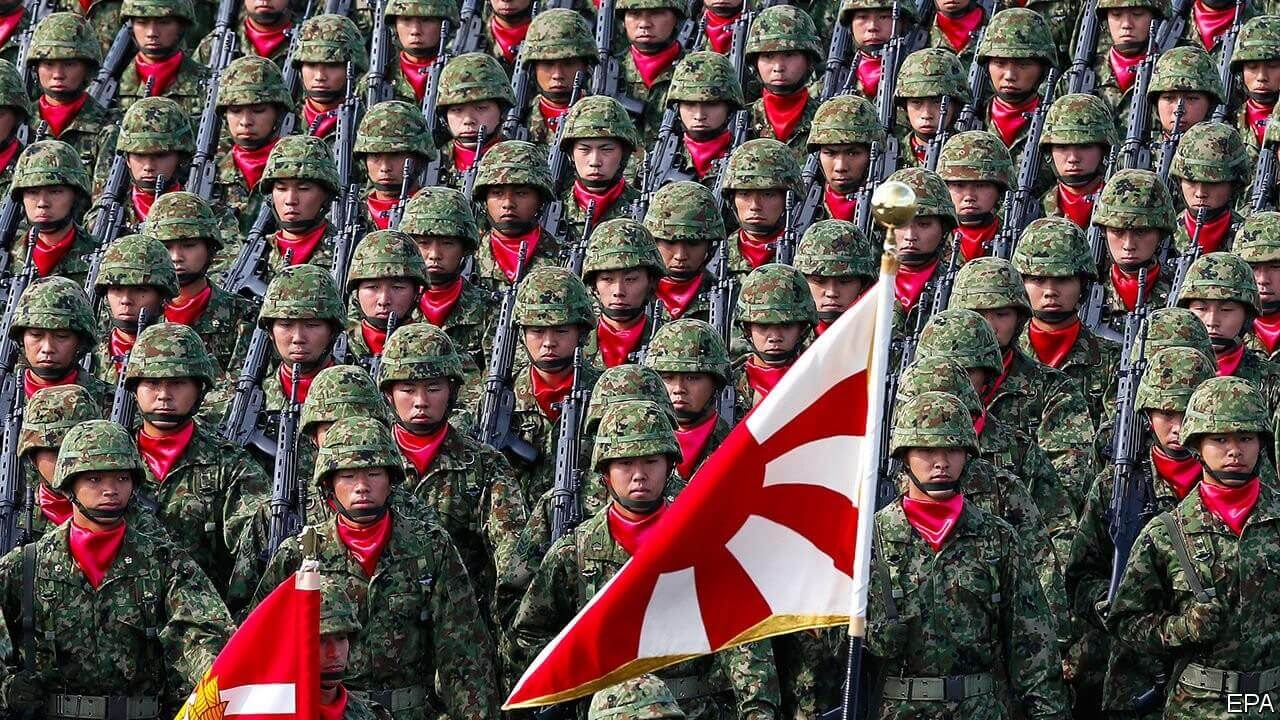Japan’s Ministry of Defense (MOD) released its annual white paper on Friday, in which it once again identified Russia, China, and North Korea as the biggest threats to its national security.
Japanese Defence Minister (DM) Nobuo Kishi said in the paper’s opening remarks that the “international community is currently facing its greatest trial since WWII,” referring to Russia’s invasion of Ukraine. He underscored, “Such unilateral changes to the status quo by force should never be tolerated,” noting that the war is not only a European issue but one that concerns the entire world, due to its implications on ‘global power balance.’
In this regard, Kishi said the Indo-Pacific is “at the centre” of evolving global strategic competition, denouncing China’s ‘unilateral’ attempts to change the status quo in the East and South China Seas through “coercion.” He thus noted that increased cooperation between “aggressor nations” Russia and China, as seen through joint navigations and flights, is a clear and prescient threat. He also expressed concerns that China’s “clear” indications that it will “not hesitate to unify Taiwan by force.”
The Japanese DM also spoke out against North Korea’s “repeated” ballistic missile tests over the past few months and growing proximity to Russia, as evidenced in its recent recognition of the independence of Donetsk and Luhansk.
Strong tone taken by Japan’s DM Kishi in the 2022 Defense of Japan white paper. On Russia’s invasion of Ukraine: ‘This defiance of international order is not just Europe's problem.’ Note too on the new National Security Strategy 🇯🇵‘thinking flexibly beyond existing paradigms’… pic.twitter.com/WgiaamGQrs
— Robert Ward (@RobertAlanWard) July 22, 2022
To this end, Kishi welcomed that Japan has “many likeminded parnters” to confront and deter these “unprecedented challenges,” most notably the Japan-United States (US) alliance, which he said “remains unshakeable.” He also hailed the trilateral cooperation between Japan, US, and Australia, as well as the increased importance of the Quad (which comprises Japan, the US, Australia, and India).
The minister said these alliances will help Japan confront new and emerging threats, such as information warfare and cyber warfare.
Looking to the future, Kishi said that Tokyo is “currently working on drawing up a new National Security Strategy, etc. under the order of Prime Minister Kishida.” He added that the government will “boldly” establish new strategies and think “flexibly beyond existing paradigms in order to preemptively deter changes to the status quo by force.”
The minister concluded his summary by assuring that the MOD and the Self-Defense Forces (SDF) will continue “to constantly defend Japan in a resolute manner and ensure continued regional and international peace and prosperity.”
The Chinese foreign ministry said on Friday that it had lodged stern representation to Japan over a new defense white paper, saying the document was playing up a so-called "China threat," interfering in the country's internal affairs and smearing its defense policy. pic.twitter.com/oOV4Gqti0u
— Zhang Meifang张美芳 (@CGMeifangZhang) July 22, 2022
The white paper noted with concern that Russia’s war against Ukraine, which it noted is a violation of international law, could spread to the Indo-Pacific. Furthermore, it raised alarm about China’s escalating ‘fusion’ of civilian and military resources, noting that its defence budget has grown for 30 consecutive years.
Aside from bolstering defence capabilities and forming strong alliances, the document recommends the use of economic and military sanctions as a deterrent force.
It said this deterrent force must also be complemented by improving the defensive capabilities of the country’s SDF. To this end, it notes Japan’s increased defence expenditure, which it says will be used to expand its capabilities in the space, cyber, and electromagnetic domains. The document notes that Japan’s FY2022 annual budget increases defence spending by 1.1%, or $404 million, to around $37.8 billion.
All of this is in pursuance of a “Free and Open Indo-Pacific (FOIP), which requires the cooperation of allies such as the US, Australia, India, the United Kingdom, France, Germany, Canada, and New Zealand.

